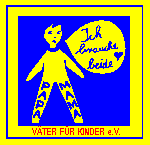American Bar Association, Chicago, Illinois, 1991. 197 pp. ISBN: 0897076281

Clawar, S. S., and B. V. Rivlin, Children Held Hostage: Dealing with Programmed and Brainwashed
Children,
American Bar Association, Chicago, Illinois, 1991. 197 pp. ISBN: 0897076281 
Abstract: (from the introduction) This treatise is based on years of experience counseling families in divorce and evaluating children during custody litigation. It should provide guidance to the bar, bench, and mental health professionals in ascertaining whether a child has been intentionally brainwashed or alienated from one parent by the other parent, and if so, it offers methods of dealing with these children.
Introduction: The need for the study of programming and brainwashing by Lynn Z. Gold-Bikin
1.Brainwashing and programming: Definitional perspectives, levels of awareness, and stages
Varied Meanings
Political
Computer Technology
Social.Psychological Usage
Legal/Forensic
Operational Definition:Clarifying the terms and distinguishing between programming and brainwashing
Defintion Employed in This Study -Programming
Brainwashing
Levels of Awareness: The Brainwasher Versus the Recipient
Can You Have One without the Other?
Stages of Programming/Brainwashing
Ideational and Emotional Components/Thematic Focus
Emotional considerations
Mood-Induction and Sympathy-Creating Tcxhniques
Compliance and Testing of Effectniveness Stages
Loyalty Measures
Escalation/Intensification/Generalization
Maintenance of the Programme
2. Brainwashing techniques
Denial-of-Existence Syndrome
The "Who-Me?" Syndrome
1. Extended Family
2. Career
3. Living Arrangement and Travel
4. Activities
5. Associates
Middle-Man Syndrome
Circumstantial Syndrome
"I don't know what's wrong with him" Syndrome
The Ally Syndrome
The Morality Syndrome
Threat of Withdrawal of Love Syndrome
"I am the only one who really loves you" Syndrome
The Case of the Overindulgent Father
"You're an Endangered Species" Syndrome
Rewriting Reality Syndrome
The Case of the Fallen Father
Physical Survival Syndrome
3.Motivational factors:
Introduction
1.Revenge
2.Self-Righteousness
3. Fear of Losing the Child
4. Sense of Past History
5. Proprietary Perspective
The Case of the Pregnant Proprietary Mother
6. Jealousy
7. Child Support
8. Loss of Identiy
9. Out of Sight, Out of Mind
10.Self-Protection
A. Alcoholism or Drug Abuse
Case of the Self-Professed Teetotallers
Grandparents as custodians when there is evidence of alcoholism or drug addiction
B. Incest or Child Abuse
The Case of the Punitive Daughter
C. Abductors
D. Criminal Involvement
E. Mental Health
Case of the "Crazy" Parent
F. Problematic-Social Realtionships or Life-Style
G. Preexisting or New Physical Health Condition
The Case of th Abandoned Mother
11. Maintaining the Relationship through Conflict
The Case of the Backlash Child
12. Power, Influence, Control, and Domination
Case of the Embittered-Chaotic Moher
4. Detection Factors: Uncovering the programmer's themes and processes
Contradictory Statements
The Case of the Parent Who Wouldn't Compete
Inappropriate and Unnecessary Information
Character Assault
Collusion or One-Sided Alliance
Child Becomes Spy or Conduit of Information
Use of Indirect Statements
Restrictions on Permission to Love or be Loved
Unchildlike Statements
Good Parent versus Bad Parent
Comparative Martyr Role
Fear of Contact With the Other Parent
Anxiety Arousal
The Case of the Dangling Love
Cohort in Secret Keeping
Child Appears as Mirror Image of Programmer
Confusion of a Birth Parent's Importance
Manifestation of Guilt
Scripted Views
Unmanageability for no Apparent Reason
Radical Changes and Dysfunctional Behavior Manifested in Other Spheres
Nonverbal Messages
Coaching Behavior
Brain Twirling
Child Threatens Parent
Child as Parent's Best Friend
Physical Survival
5.Impact and influence factors: The effects on children and relationships
I.Relational Impact and Influence
Threatening to Live with the Noncustodial Parent
Power Conflicts and Manipulation
School-Realted Problems
Materialistic Demands
Behavioral Problems
Acting Out
Sibling Conflict
II. Personal Impact and Influence
Identiy
Anger Directed toward Both Parents
Behavioral Regresion
Creating a Fantasy Parent
Programmers/Brainwashers Often Beget Programmers/Brainwashers
Residential Propinquity
Multiple Programmers/Brainwashers
Vulnerability Characteristics
Dependence
Fearfulness
Passivity
Lack of Insight
Confused
Conditionally Loved
Self-Centered
Identification with the aggressor
Playing the rescuer
Guit feelings
Invulerability Characteristics
Independence
Self-Confidence
Assertiveness
Insightfulness
Unconfused
Unconditionally Loved
Other-orientated
Identification with nonaggressor
Views adults as being survivors
Guitless
Social Factors Impeding the Success of Programming and Brainwashing
6.Deprogramming factors: Forms of intervention
Knowledge of the Themes and Content of the Programme (Programming)
Knowledge of Techniques Employed to Inculcate the Themes (Brainwashing)
Knowledge of the Duration and Intensity
Knowledge of the Motives of the Programmer
Evaluation of Degree and Types of Damage
Evaluation of the Resources Available in the Deprogramming Process
Establishment of Rapport
Knowledge of Risks
Identifying and Dealing with "The Point of no Return"
Knowledge of the Shutdown Messages
Introduction of Objective Materials
Environmental Modification
Reeducation,Counseling, Therapy
Measuring the Degree and Type of Changes that Can, Will, or Have Taken Place as a Result of the Deprogramming
Process
7.The female factors: Why women programme more than men
1.Birthright
2.Proprietary Exclusionary Perspective
3.The Family and Women are Synonymous
4.Female Identiy and Parenting
5.Financial-Support Needs
6.Lack of Other Resources
7.Continuity and Family History
8. Negative Opinions of Mens's Capacity to Parent
9.Peer-Group Expctation
10.Fear of Another Loss
11.Desire to Move or Leave a Geographical Area
12.Desire to Create the New Family
13.Opportunity
Summary of the Sex Differences in Programming/Brainwashing
8.Findings, conclusions, surprises, and implications of the study
Category I: The Extensiveness of th Themes or Content of the Programme
Category II: The Great Diversity of Techniques Employed by Programmers and Brainwashers and Brainwashing to
Inculcate their Messages, Themes and Goals
Category III: The Multiplicity of Social/Psychological Motives of the Programmer/Brainwasher
Category IV: Detection Factors
Category V: The Types of Impact the Programming/Brainwashing Processes Have on Children
Category VI: The Potential for Successful Intervention, Reduction, and Modification of the Damaging Effects on Children
Category VII: The Female Factor
Category VIII: General (With Implications for the Legal System)
Appendix: Research techniques and sample characteristics
Glossary of programming/brainwashing terms